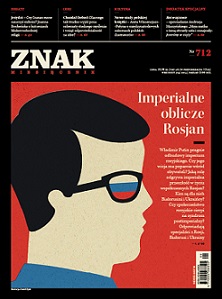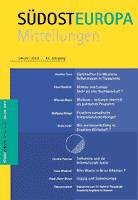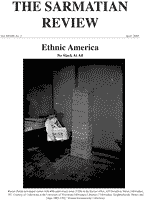
We kindly inform you that, as long as the subject affiliation of our 300.000+ articles is in progress, you might get unsufficient or no results on your third level or second level search. In this case, please broaden your search criteria.






This article is a continuation of the considerations undertaken by the author in the text “Cultural Institutions in Poland – the nature of their organization and fi nancing” [published in the on-line version of „Zarządzanie w Kulturze” 2012, nr 13, z.4, pp. 305–328, Krakow 2012, http://www.wuj.pl/page,art,artid,1303.html], where the analysis of the concept of “culture institution” relating to the public sector was carried out. This article focuses on the management of the culture institution, analyzing the impact of the organizer on the mission of the institution, by appointing a director or entrusting the management to an external entity. The author analyzes the relationship between the culture institution and its organizer, asking questions about the possibility of reconciling the effective implementation of the statutory tasks of the institution with the principles of the market economy.
More...
Information management plays an extremely important role in journalism, mainly because journalists are autonomous in selecting and prioritizing topics. Walter Gieber wrote: “News is what newspapermen make it,” emphasizing the omnipotence of journalists and editors in the process of selecting information , primarily in the context of journalism winning or losing its credibility. One of the instruments of control over the contents of communication in the media is framing. This is an important tool used in editorial work, to predict the life of a media event. The article is an attempt to outline the relationship between framing and management of information in modern journalism
More...
The article presents a theoretical approach to management seen from the humanistic point of view. This kind of consideration becomes urgent especially in the context of the contemporary economic environment. Its turbulent and rapid changeability and the increasing role of information imposes a reconstruction of the management theory and methodology. The main question of the investigation concerns possible reasons for using the term “humanistic” in the context of management. This term is based on a different kind of knowledge but is very promising as a possible theoretical extra supply. The article proposes to see the process of management as a pragmatic process because it leads to a specifi c result, which is the change of a certain chosen segment of reality. This change is also expedient and pragmatic because it uses conceptual constructions to determine and describe itself. At the same time, the so described theory of management encounters a very important set of theoretical concerns tied with the contemporary discourse on knowledge and its conditions. This kind of discourse played a fundamental role in the second half of last century and changed most of our beliefs about such concepts as knowledge, truth and so on. It also led to the rebirth of crucial epistemological questions. This kind of concerns and questions make theory become humanistic, which also happens with the theory of management which, in this way, acquires the right to be seen as humanistic.
More...
Fundamental to the understanding of creative economy – what it comprises and how it functions in the economies of both developed and developing countries – are the concepts of “cultural industries” and “creative industries”. This article provides an overview of the development of the concepts of “creativity” throughout this decade leading to what has become known as “creative economy”. The author’s intention is not to reach a fi nal consensus about the concepts, but to understand their evolution. The major drivers of the growth of creative economy and its multiple dimensions are examined in the light of recent developments including the world economic crisis. This article also provides evidence for economic contribution of creative industries to economy. The author also tries to consider separately the notions of economic value and cultural value. In this approach, he refers to the fact that economic thought is based on a traditionally individualistic approach, while culture is a manifestation of collective behavior.
More...
Early trade relations of Leipzig have been evident since the 14th/15th century. In the centuries to follow until the end of the 20th century, the trade fair city of Leipzig formed an important reference point and emporium for exchanging goods between Southeastern Europe and Central and Western Europe. Since the 17th/18th century, Leipzig’s function as a book and university city came along with the traditional trade relations. The publication possibilities offered in Leipzig played an important part for the national and nation state movements of the Southeast European peoples in the 19th century. The University of Leipzig gained increasing importance at the end of the 19th century as a pioneer in the European research work on Southeast Europe, especially for the exploration of languages and cultures in the Balkans. The relations between Leipzig and Southeast Europe (Hungary, Rumania, Bulgaria) were specifically intensified by the integration into the Warsaw Pact and the Council for Mutual Economic Cooperation (Comecon). The many years of Leipzig’s relations with the European Southeast form the background for the Southeast European research work, presently located in Leipzig and carried out at the University of Leipzig (languages, literature), at the Institut für Länderkunde (geography) and the Geisteswissenschaftliches Zentrum Geschichte und Kultur Ostmitteleuropas (humane disciplines).
More...
Detailed list of Croatian Internet entries with addresses, descriptions and comments by Thomas Bruns.
More...
This essay is a short analysis of the representation of 'the Others' – in this case the Albanians – in the Serbian movie »The Hornet«, 1998. The movie was filmed by a 'pro-democratic' and 'anti-Milosevic' circle of artists, but in its essence it reproduced the same stereotypes and mechanisms used by the official government of that time. In it, the problem of Kosovo is seen as a pure criminal one; the problem of cultural, social or class differences between Serbs and Albanians is minimized and reduced to the problem of the Mafia. As we learn, this problem can be solved with a simple, effective police intervention – which we all witnessed soon after.
More...
What is “Eastern Europe?” On just and unjust wars (excerpts) by Stanisław of Skarbimierz (1360–1437) From Sermones de sapientia selectae/Mowy wybrane o mądrości, edited by Mirosław Korolko (Kraków: Arcana, 1997). Translated by permission. Stanisław of Skarbimierz was appointed Chancellor of Jagiellonian University in 1400. He assisted Polish representative Paweł Włodkovic at the Council of Konstanz (1414–1418) where Poland argued her case against the Teutonic Knights bent on seizing Polish territory. Notes on the Contributors
More...

Review: The Last Mazurka. A Tale of War, Passion, and Loss. By Andrew Tarnowski. New York: St. Martin’s Press, 2007. xv + 348 pages. "Tarnowski’s book raises interesting questions about gender dynamics within the Polish aristocracy and even gender stereotypes in memoir literature."
More...
Obituary: Kevin Hannan, Professor of Linguistics at the University of Łódź Thank You Note of the Sarmatian Review
More...
Book reviews: The Associated Press Stylebook and Briefing on Media Law, 42nd edition. Edited by Norm Goldstein. Sibirskoe likholet’e [The years of Siberian tragedies], by Szymon Tokarzewski [spelled wrongly as “Tokarzewsky” on the bibliography page]. Translated into Russian by Meri Kushnikova, edited by Viacheslav Toguev. Kemerovo, Russia: Kuzbassvuzizdat, 2007. Biuletyn Instytutu PamiΠci Narodowej, no. 4 (75), April 2007, 116 pages; nos. 5–6 (76 –77), May-June 2007, 148 pages; no. 7 (78), July 2007. Polish Americans in California, edited by Gene Harubin Zygmont, Artur Zygmont, Gillian Olechno- Huszcza (Part I), and Henrietta Simons (Part II). National Center for Urban Ethnic Affairs and Polish American Historical Association [no place given], 1995.
More...
Review of the publication Why Sienkiewicz? Sienkiewicz and National Identity: With Whom and Against Whom? [Po co Sienkiewicz? Sienkiewicz a tożsamość narodowa: z kim i przeciw komu?] Edited by Tadeusz Bujnicki and Jerzy Axer. Warsaw-Kiejdany-Łuck-Zbaraż-Beresteczko: Wydawnictwo DiG, 2007. 430 pages plus color illustration. English summary, index of names, list of illustrations. In Polish.
More...
Review: For More than Bread Community and Identity in American Polonia. By William J. Galush. Boulder, CO: Eastern European Monographs distributed by Columbia University Press, 2006. "One of American Polonia’s achievements was to forge a common Polonian identity on foreign shores from among disparate groups of Pomeranians, Mazovians, and Galicians that came from partitioned Poland."
More...